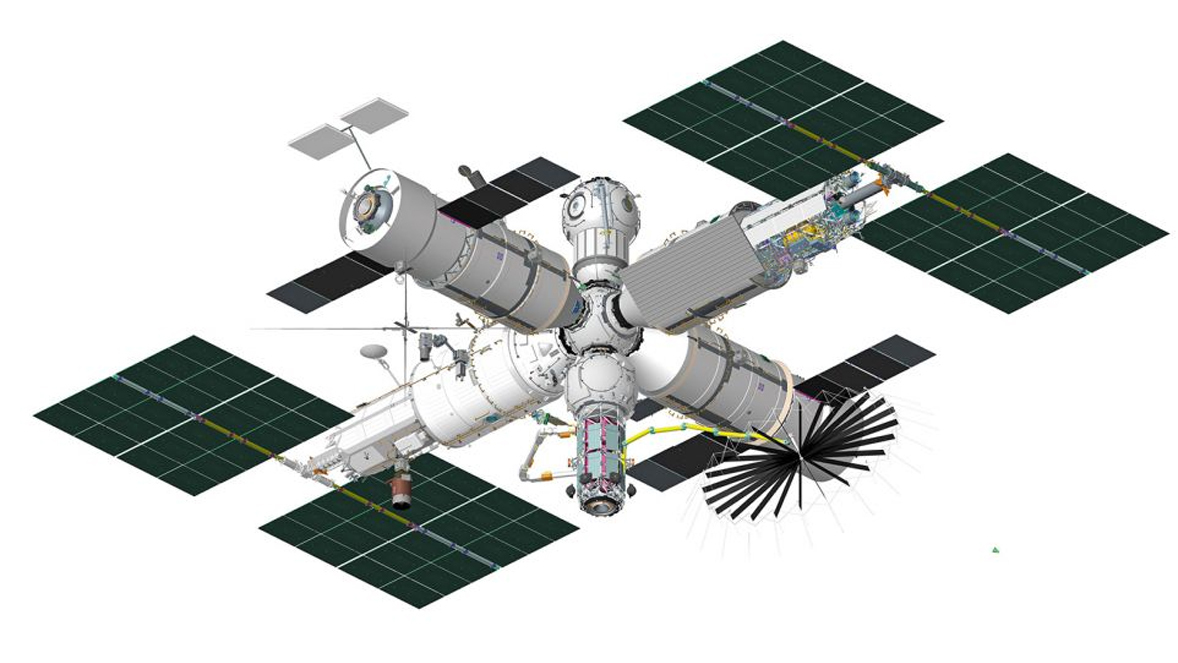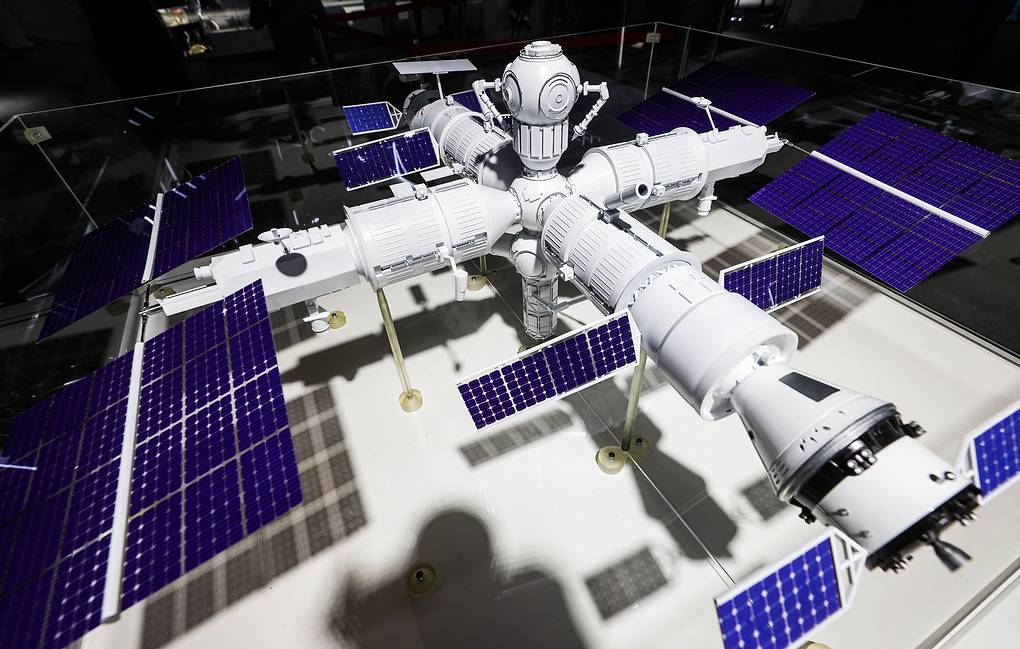Russian Space Station: Roscosmos Approves Design For Orbital Station As ISS Collaboration Nears End

Roscosmos, Russia’s state corporation responsible for space activities, has given the green light to the preliminary design of the country’s future space station paving the way to fulfill the country’s space ambitions.
The design milestone for the future space station, achieved nearly a year after the first version of the design was completed, represents a crucial advancement in Russia’s plans for space exploration.
State-owned media agency TASS, citing the official statement released by Roscosmos, confirmed the approval of the preliminary design, signaling the commencement of the next phase in the development of the Russian Orbital Station (ROS).
Roscosmos, along with its main contractors, is now in the process of finalizing government contracts for the construction of the station.
The pathway to securing this approval can be traced back to July 2023, when the first version of the design was completed. Subsequently, it underwent rigorous scrutiny and refinement by various scientific organizations, including the TSNIImash research institute, Tekhnomash, and the research and testing center of the space rocket industry (NITs RKP).

After months of meticulous assessment, the design was honed to its current state, ready to pave the way for Russia’s future space station.
In its latest statement, Roscosmos reiterated that the proposed station would serve as the cornerstone of Russia’s national space program once the International Space Station (ISS) reaches the end of its operational lifespan.
In August 2022, Roscosmos unveiled a model of the space station, named “Ross” by Russian state media, for the first time at a military-industrial exhibition near Moscow. As previously reported, the station is scheduled for deployment between 2027 and 2032.
The choice to construct its space station originates from Russia’s desire to reduce dependency on Western nations following the imposition of sanctions after the invasion of Ukraine.
The move reflects Russia’s aim to pursue space initiatives independently or in partnership with countries such as China and Iran.
In July 2022, the Russian space agency announced its intentions to withdraw from the International Space Station “after 2024,” which many interpreted as an immediate departure.
However, the Russian government later declared its agreement to extend participation in the ISS until at least 2028, becoming the final partner to consent to prolong the station’s operations.
Characteristics Of Russia’s Future Space Station
Russia’s future space station will orbit the Earth in a polar trajectory with an inclination of up to 97 degrees. This positioning will provide extensive coverage of the Earth’s surface, including the vital Northern Sea Route.
In contrast, the current International Space Station offers visibility of approximately 60% of the Earth’s surface, with only a fraction falling within Russian territory. The polar orbit of the ROS guarantees stable communication with mission control — a critical aspect of space missions.
Among the ROS’s notable features are its powerful power-generating units, which will facilitate extensive testing and refinement of essential equipment, radars, and high-power antenna systems.
The station’s power will be generated, in part, by gyroscopic systems, enabling it to maintain its orbit without relying on engines and resulting in significant fuel savings.
Roscosmos outlined the phased deployment of the ROS, starting with the launch of the research, power supply, and airlock modules, followed by the base module responsible for control functions.

Subsequent add-on modules will be incorporated into the station over time, ensuring its continuous evolution and adaptability to future space missions.
Importantly, unlike its predecessor, the ISS, the station will be capable of autonomous operation without the need for a crew onboard, highlighting its resilience and independence in space exploration efforts.
As Russia continues to pursue its ambitious plans for space exploration, the approval of the ROS’s preliminary design signifies a significant milestone, paving the way for the nation’s sustained involvement in space exploration for decades to come.
In October last year, Roscosmos CEO Yuri Borisov disclosed that the project’s costs were estimated at 609 billion rubles (approximately $6.6 billion at the current exchange rate) until 2032, with 150 billion rubles earmarked for the initial three years.
The project remains open to international collaboration, with invitations extended to African and BRICS countries to participate.
Nevertheless, amidst the ongoing conflict in Ukraine, concerns persist regarding the continued funding required for building and deploying the space station. Russia faces a substantial revenue decline due to a significant decrease in satellite launch orders—approximately 90%—from Europe and other regions, posing challenges to the project’s financial sustainability.
- Questions and Answers
- Opinion
- Motivational and Inspiring Story
- Technology
- Live and Let live
- Focus
- Geopolitics
- Military-Arms/Equipment
- Ασφάλεια
- Economy
- Beasts of Nations
- Machine Tools-The “Mother Industry”
- Art
- Causes
- Crafts
- Dance
- Drinks
- Film/Movie
- Fitness
- Food
- Παιχνίδια
- Gardening
- Health
- Κεντρική Σελίδα
- Literature
- Music
- Networking
- άλλο
- Party
- Religion
- Shopping
- Sports
- Theater
- Health and Wellness
- News
- Culture

